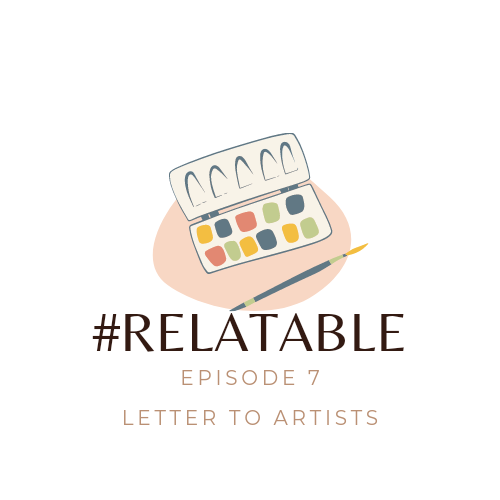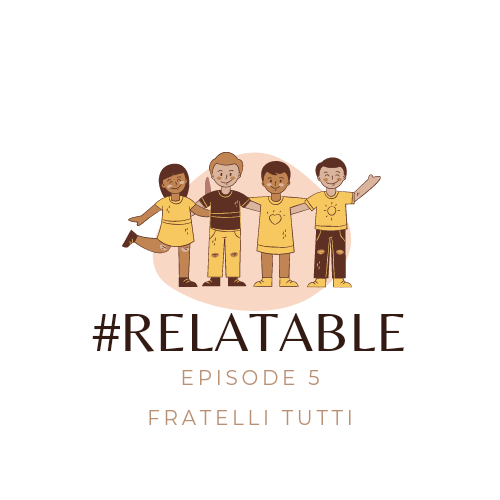#relatable Ep6: Humanae Vitae
- Jun 20, 2021
- 5 min read
Updated: Sep 3, 2021
This is part of a 8-part series where I take a closer look at Vatican documents and distill some gems that you can take with you on your own journey to knowing and loving Him.

In recent years, the institution of marriage and family has come under threat and fittingly I was reading St John Paul II's book, Love and Responsibility which details some of the issues that continue to sit heavy on our hearts. I find the title itself interesting, inherently love is about responsibility and about being accountable to the beloved. In a society where we sometimes view each other as "products" or "objects", I was deeply moved by what St John Paul II had to say on the intrinsic desire to be loved, wholly and in full measure.
A particular quote that struck me deeply was:
Love consists of a commitment which limits one's freedom - it is a giving of the self, and to give oneself means just that: to limit one's freedom on behalf of another.
I delved into Humanae Vitae, an encylical focussing on issues of married life and the use of contraception and came away with deep revelations.
I will focus on 3 key areas which touched me deeply and which you may consider for reflection too!
Married Love
It is a love which is total—that very special form of personal friendship in which husband and wife generously share everything, allowing no unreasonable exceptions and not thinking solely of their own convenience. Whoever really loves his partner loves not only for what he receives, but loves that partner for the partner's own sake, content to be able to enrich the other with the gift of himself.
The idea of total gift of self in the context of marriage seems strange given the recent rise of short-term relationships, or even I daresay "hookup culture", where both men and women are driven increasingly by short term physical connection over long term commitment. Our generation has even been labelled as "commitment-phobic", preferring the relative "safety" of low risk, low commitment relationships, sans the not so positive aspects, like the disagreements and pain. Yet, I see Humanae Vitae's ideal of married life not as something that is unattainable, but the standard to which all our relationships should strive toward. With rising divorce rates, and couples throwing in the towel at the first sign of trouble, what we really need is a renewal of our commitment to a complete gift of self. Married love is not selfish, just as the familiar verse of 1 Corinthians points to the ideal of the love we receive from God the Father, free, total and holding nothing back from us! Another point that touched me deeply is love for one's own sake and not what our partner can do for us. This struck me as I have observed relationships built on what one can do for the other and when one does not "do" those things, or "live up to the expectations", the relationship crumbles. This calls to mind what St John Paul II also exhorts us to do which is to - love totally!
2. Faithfulness to God's Design
Men rightly observe that a conjugal act imposed on one's partner without regard to his or her condition or personal and reasonable wishes in the matter, is no true act of love, and therefore offends the moral order in its particular application to the intimate relationship of husband and wife. If they further reflect, they must also recognize that an act of mutual love which impairs the capacity to transmit life which God the Creator, through specific laws, has built into it, frustrates His design which constitutes the norm of marriage, and contradicts the will of the Author of life.
The thorny debate of pro-life and pro-choice often emerges as key criticism of the Church in that a woman is said to possess the right to her own body and should be free to use methods of contraception. Sex is viewed then as an act of pleasure solely, without consideration for the possibility of creating life. That is not to say, that pleasure is something to be avoided, rather it is to say that the sexual act in and of itself should not be viewed as an act concerning only the needs of the individual. The key argument presented in many schools of feminist thought have championed the use of contraceptive methods of birth control and the use of abortion. I respect these views. I myself believe in the equality of man and woman, but there is a stronger force that underlies my beliefs - which is the inherent sanctity of human life. Every life is a gift from God and it might seem odd in a culture which promotes sex without consequences. Yet, that calls to mind again the idea of love AND responsibility. To love fully and totally, and in this case in a carnal sense, entails a full gift of one's physical self to the other - that in itself is a thing of beauty. Yet, it is also up to us to take responsibility for the act itself, which is that procreation is a possibility. To indulge in the sexual act with no consideration of consequences sounds like liberation and freedom, but it points to a uncomfortable truth that we have avoided. The truth is, a love that is free involves responsibility and there is no issue with expressing our sexuality in the context of married life. The thing we need to be conscious of, is remaining open to the possibility of new life. It may seem difficult when the dominant culture trivialises the act itself, but there is always the necessity to be counter-cultural in times like these!
3. Promotion of Chastity
Everything therefore in the modern means of social communication which arouses men's baser passions and encourages low moral standards, as well as every obscenity in the written word and every form of indecency on the stage and screen, should be condemned publicly and unanimously by all those who have at heart the advance of civilization and the safeguarding of the outstanding values of the human spirit.
The sad truth is that because we do not discuss sexuality in an open manner, many young people resort to other means and channels to obtain information. Coupled with the plethora of mainstream media that is highly sexualised and there is a dangerous cocktail of media consumption. The act of sex itself is not problematic, rather it involves the representations in mainstream media. Men and women alike are inundated with media which promotes sexualisation and this may have a negative impact on young people who are unable to discern between what is appropriate and what is inappropriate. Hence, frank conversations are ever more necessary to provide a source of support and clarification for young people who are discovering this aspect of sexuality, as inherently, we are sexual beings and we are not disconnected from our passions. Yet, we can choose to exercise our free will and exert self-control. That is the difficult part that we observe increasingly, in part with the rising trend of men who experience sexual frustration and this points to a need for a reconnection with this part of ourselves and to understand that there is a way out of the chains that bind us!
There is much wisdom to be gleaned from the document and I have only just scratched the surface. I attach a simple Infographic I created that summarises some key points that you might find useful too as you read the document in greater detail, and with prayerfulness.

Here is a link to the document in full: https://www.vatican.va/content/paul-vi/en/encyclicals/documents/hf_p-vi_enc_25071968_humanae-vitae.html
Thank you for coming on this journey with me as we delve deeper into the wisdom of these documents as we start to learn how truly it is #relatable!



Comments